What I Discovered at the Baseball Hall of Fame

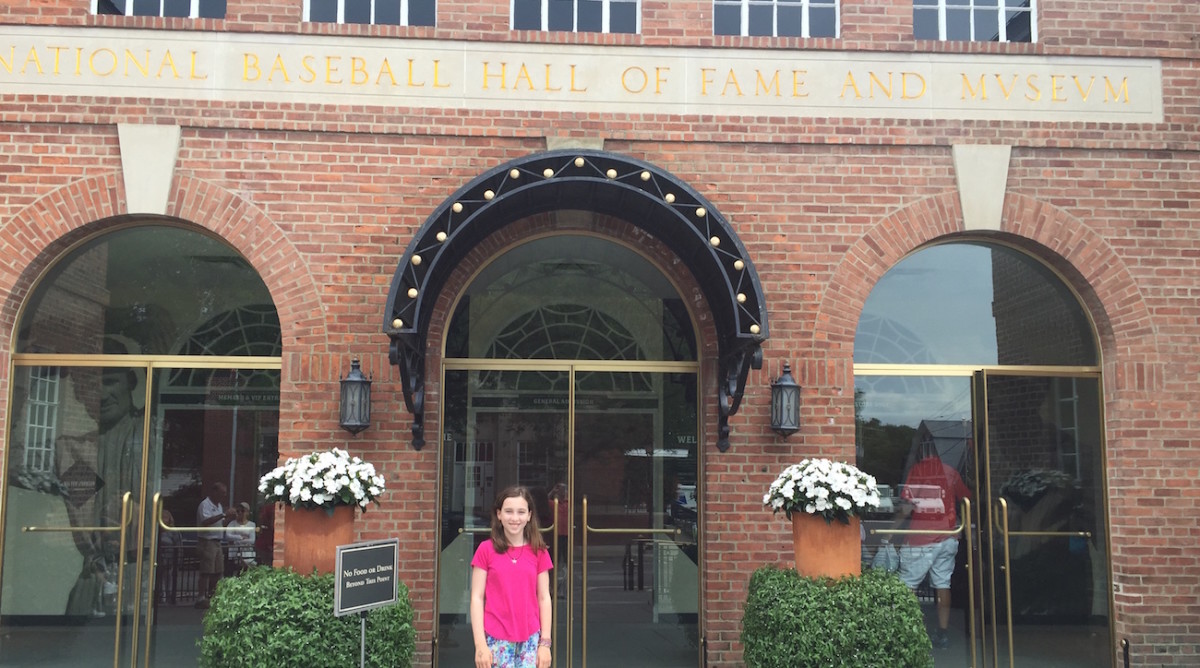
The playoffs are underway — baseball’s present is pretty exciting! But so is its history. I visited the Baseball Hall of Fame and Museum in Cooperstown, New York, this summer. I met with the manager of the Giamatti Research Center, Matt Rothenberg, and he showed me several unusual and wonderfully wacky artifacts in the archives. Did you know there is a razor blade in the Hall of Fame? How about a boomerang? Here are the most interesting — and strange! — artifacts I saw.
But I only saw a minuscule fraction of the objects at the Hall of Fame. I strongly suggest that you visit. Who knows? Maybe you will find something else that should be included on this list of extraordinary items!
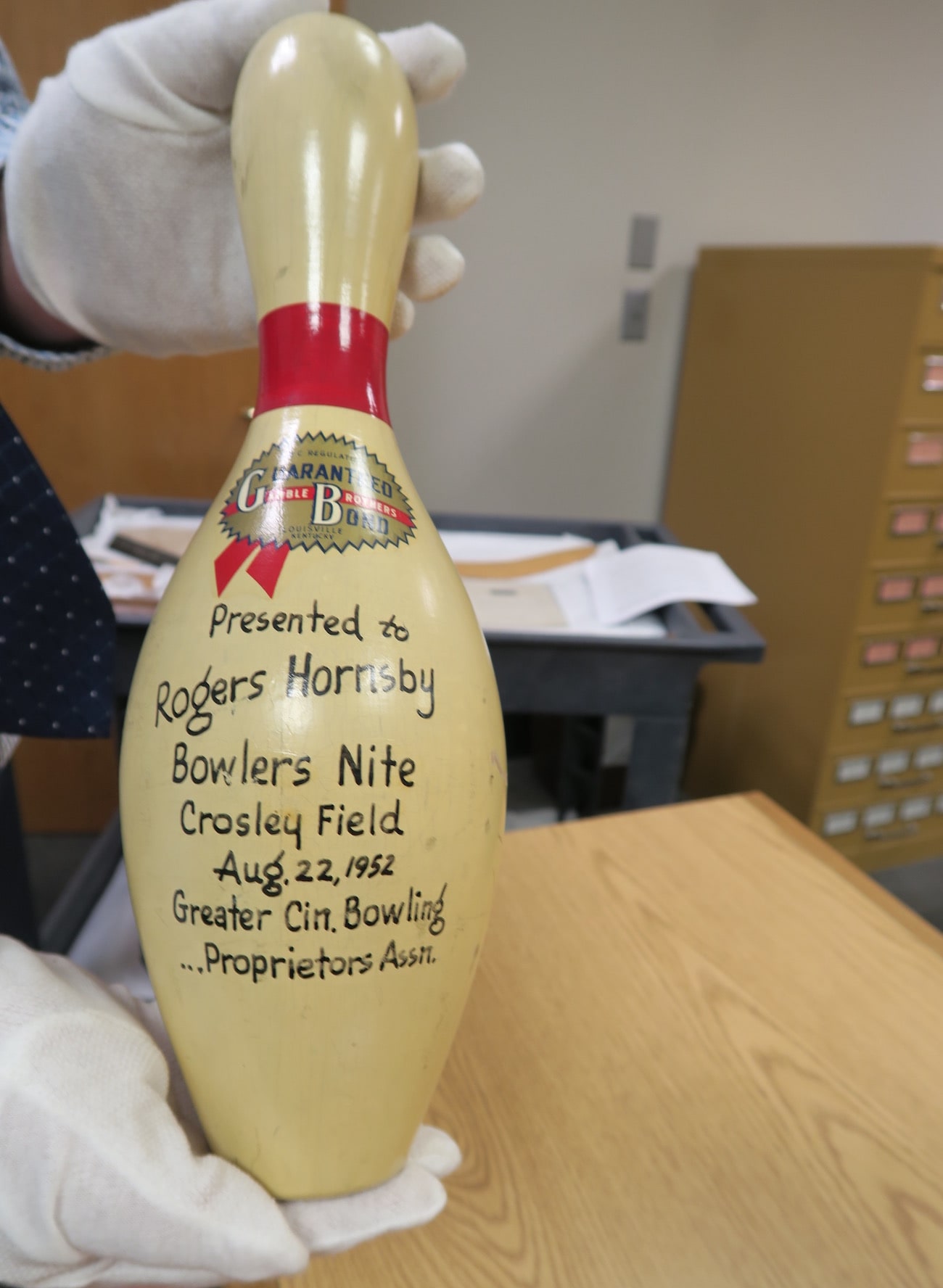
I saw the bowling pin that was presented to Rogers Hornsby on Bowler’s Night at Crosley Field (the old Cincinnati Reds stadium) on August 22, 1952. Hornsby was a second baseman for the St. Louis Cardinals during the 1920s and ’30s. Following his playing days, Hornsby had a second baseball career as a team manager. The Greater Cincinnati Bowling Proprietors Association sponsored Hornsby’s award. The Hall of Fame does not know if Hornsby was ever really a bowler — he focused on baseball! However bowling was very popular during the 1950s and ’60s. At the time he received the award, it was not uncommon for various organizations to sponsor evenings at the ballpark and then present awards to players and/or coaches. It was surprising for me to see a bowling pin at a baseball museum, though!
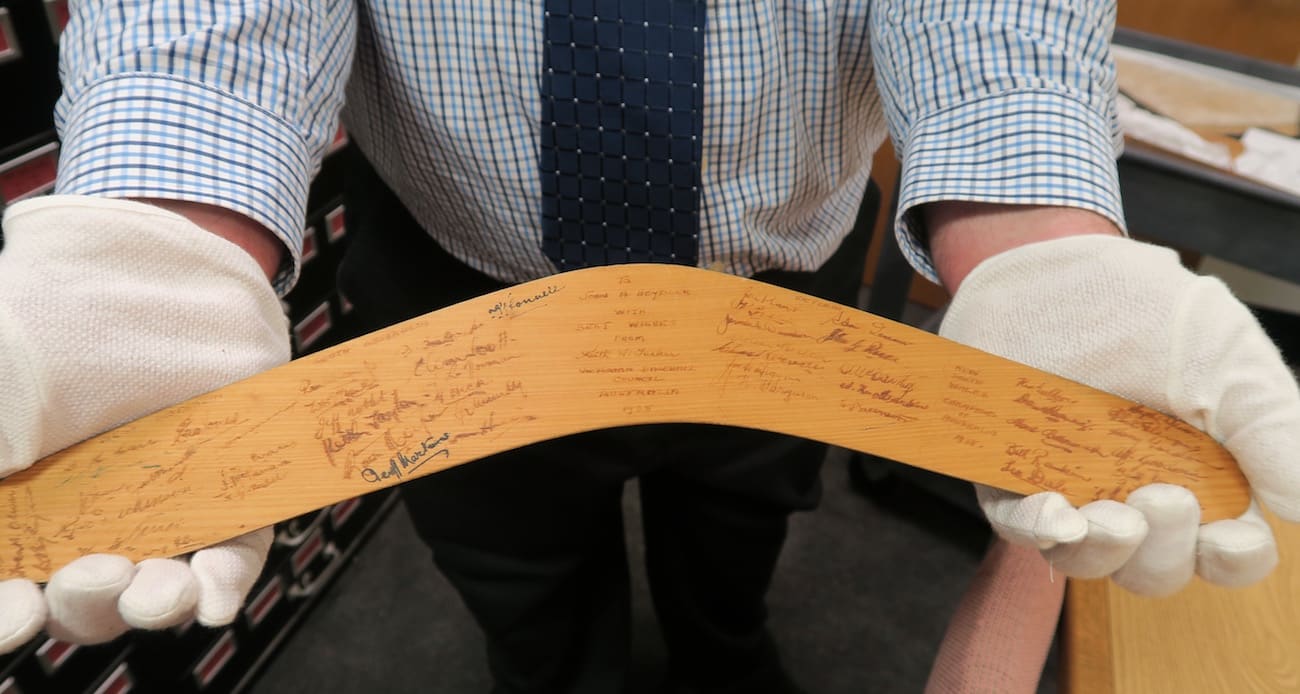
A boomerang is another item that a baseball museum doesn’t usually have! Four Australian baseball teams’ players signed this boomerang: West Australia, South Australia, Victoria, and New South Wales. These four teams were involved in the baseball championship in Australia know as the Claxton Shield. The boomerang, originally given to the president of the National League, was then donated to the Hall of Fame in 1939, the year in which the museum opened. The Museum opened 100 years after baseball was believed to have been invented by Abner Doubleday. This gift demonstrates that baseball is a very international game — it was played in Australia back in the 1800s!
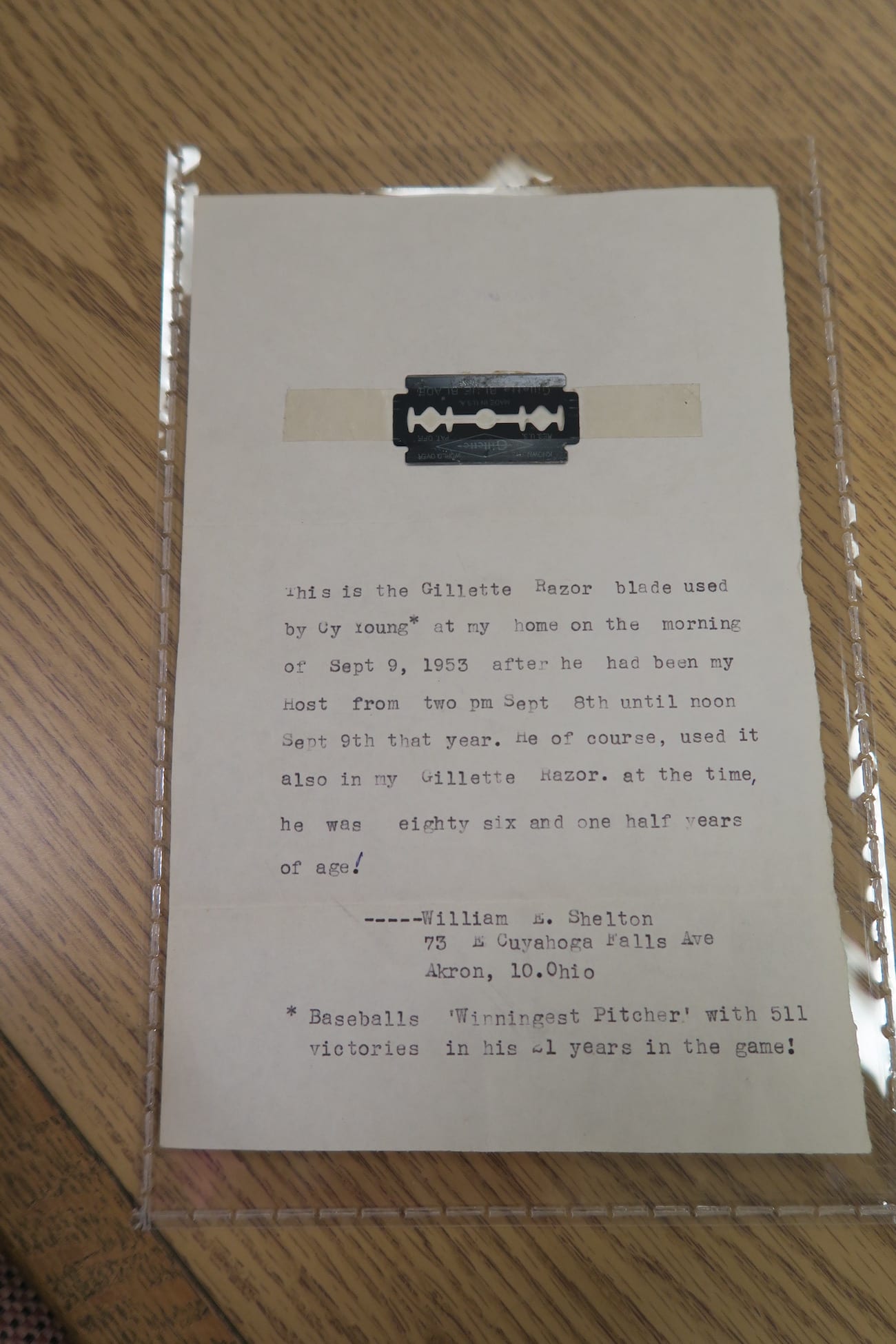
Ready to hear about why a razor blade and a block of wood are at the Hall of Fame? Both belonged to Cy Young, a pitcher who played from 1890 to 1911. He was so good he has an award named after him: the Cy Young Award, given each season to the best pitcher in the American League and the National League. After Young retired, he used to visit his friend, William Shelton, in Akron, Ohio. In 1953, he left his razor blade at Shelton’s place. Young had used this razor blade in his Gillette razor, and his friend kept it. On another visit, in ’54, Young left a different memento. He was simply chopping wood for the fire when he decided to sign a block and give it to his friend. The funny thing is that if the Hall of Fame were offered a razor blade today, Rothenberg said they most likely wouldn’t accept it. However the Hall of Fame would still have been interested in the block of wood.
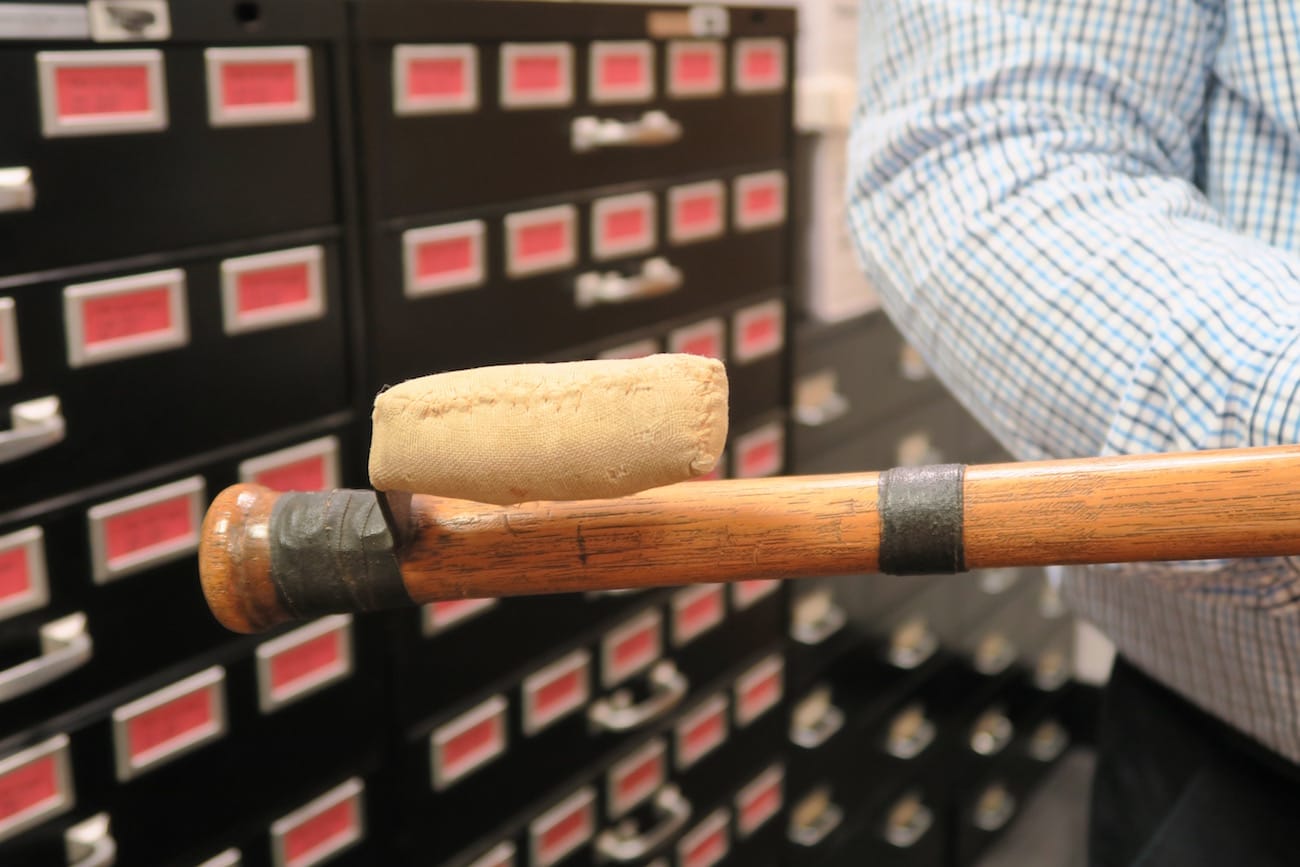
Speaking of wood, I saw another special piece of wood: a bat! Sylvester Simon played about two-dozen games in the major leagues in 1923 and ’24 for the St. Louis Browns. At his job in a factory during the off-season, he accidentally cut off three fingers and the thumb on his left hand. He loved playing baseball so much that he made himself a bat accessory, a cotton and metal lever to rest his hand against so his hand would not slide on the bat when he swung. He also had a specially altered glove to let him play baseball, and the Hall of Fame has that too! The specially altered equipment worked out pretty well for Simon. With this new equipment, he went on to have several more successful seasons in the minor leagues. This is my favorite artifact because it represents how hard Simon worked to make sure he could do what he loved.
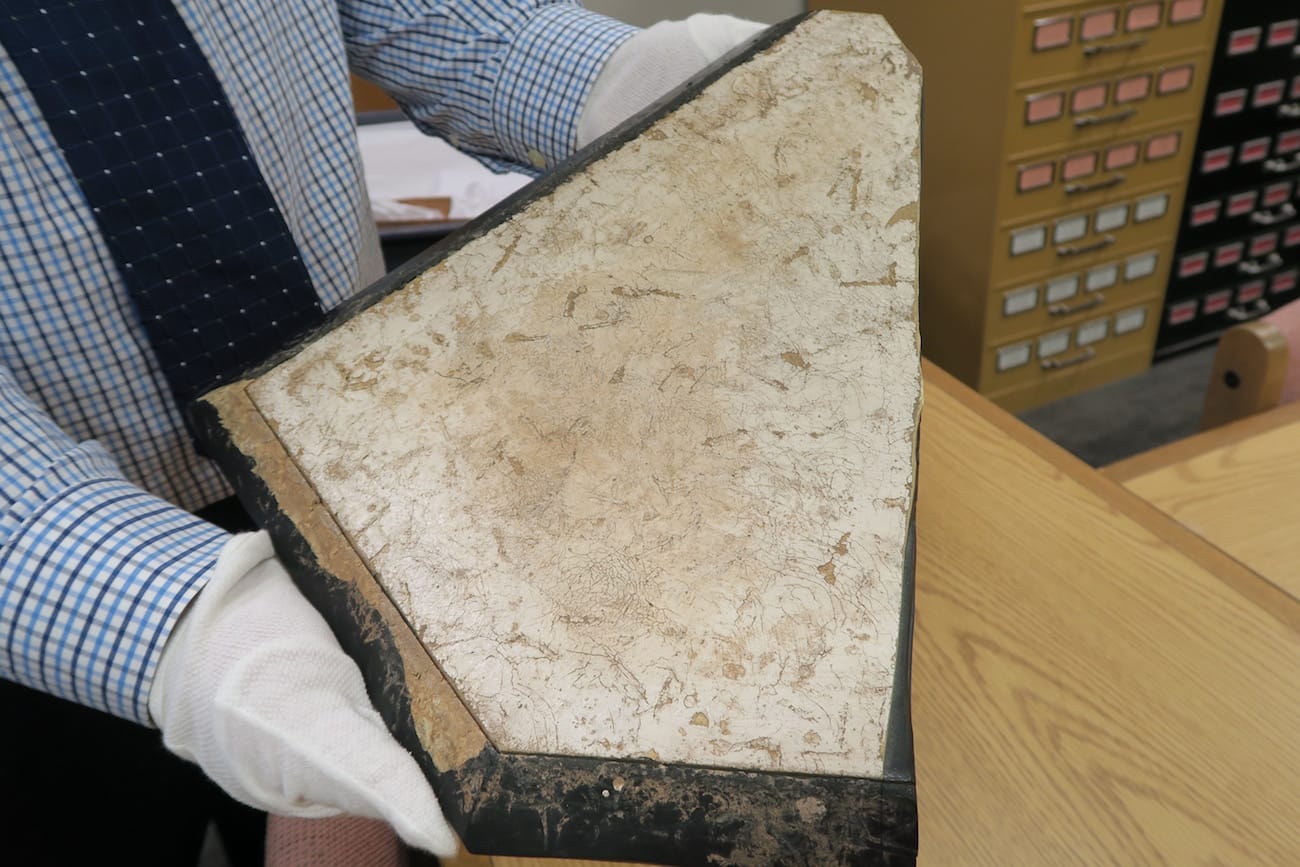
You would think that home plate from the old Shea Stadium would be meant to stay whole, right? Well, I saw half of home plate that was used during the Miracle Mets’ season of 1969. After the last home game of the season, on September 24, 1969, the fans were understandably excited, and many streamed onto the field. Two college students from Brooklyn grabbed home plate. Yes, you read that right: They stole home! When the students wanted to get the plate out of the stadium, they found some other men to surround them (and the plate) to lead them out of the stadium. In return, the college students gave the men half of home plate! The Hall of Fame does not know where the other half is.
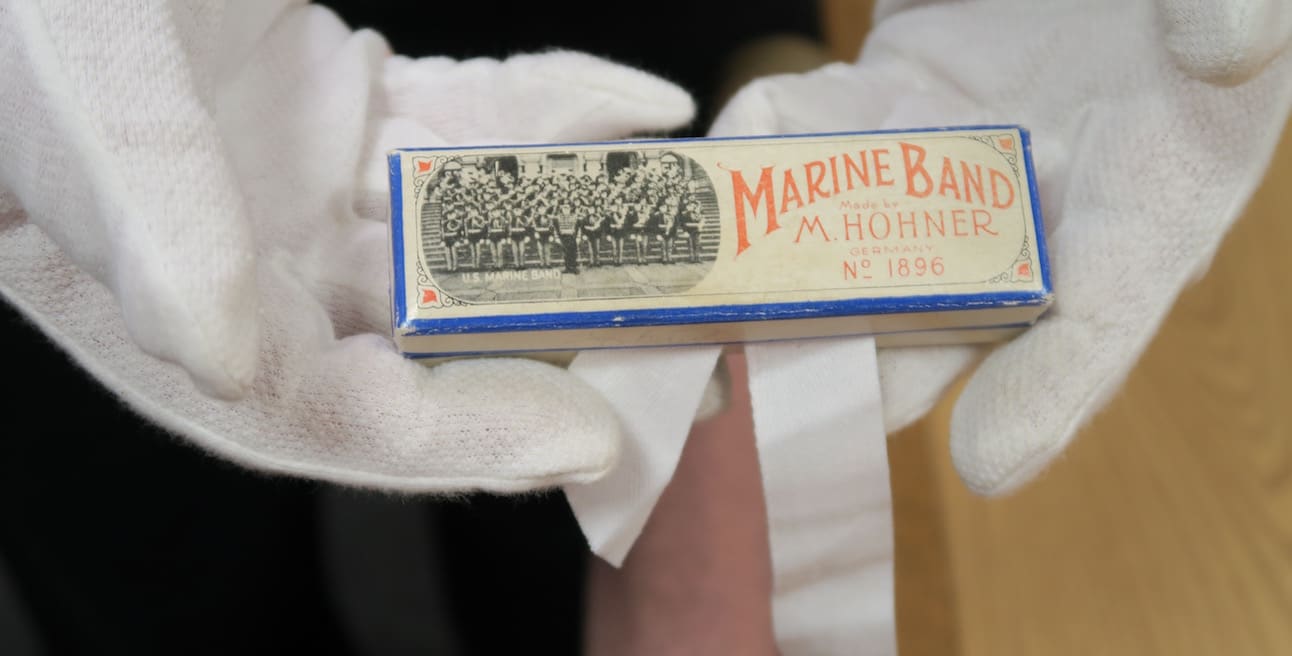
You wouldn’t expect to see a harmonica showcased as a baseball memento. However, the Hall of Fame has one signed by Yankees catcher Yogi Berra and Phil Linz, a utility infielder who played for New York in 1964. The Yankees were in pennant contention, but things were not going so well. They had lost in Chicago, and on the bus ride to Boston, for their next series, Linz started playing his Hohner Marine Band Harmonica from the back of the bus. Some people say he was playing “Mary Had a Little Lamb,” but others think he was just playing notes. It is not very clear because there are a lot of stories. Berra, who was the manager of the Yankees at the time, was not pleased that Linz was playing the harmonica after a bad loss in Chicago. From here there are various stories. Some people say that Berra told Linz to stop playing, but that because Linz was in the back of the bus, he did not hear Berra. Then Mickey Mantle told Linz to play louder, which made Berra angrier. Other stories say that Linz did not hear Berra, and no one told him anything, so he kept playing. Or that Linz didn’t care and just kept playing, ignoring Berra. Whatever happened, there was a bit of a fight, and the harmonica that Linz was playing was tossed out the window of the bus and broke. Linz was fined $200 by Berra for the incident. After the season (the Yankees won the pennant, by the way), the Hohner Company in Long Island heard about this episode and sent another harmonica to a sportswriter, who brought it to Linz and Berra, who both signed it.
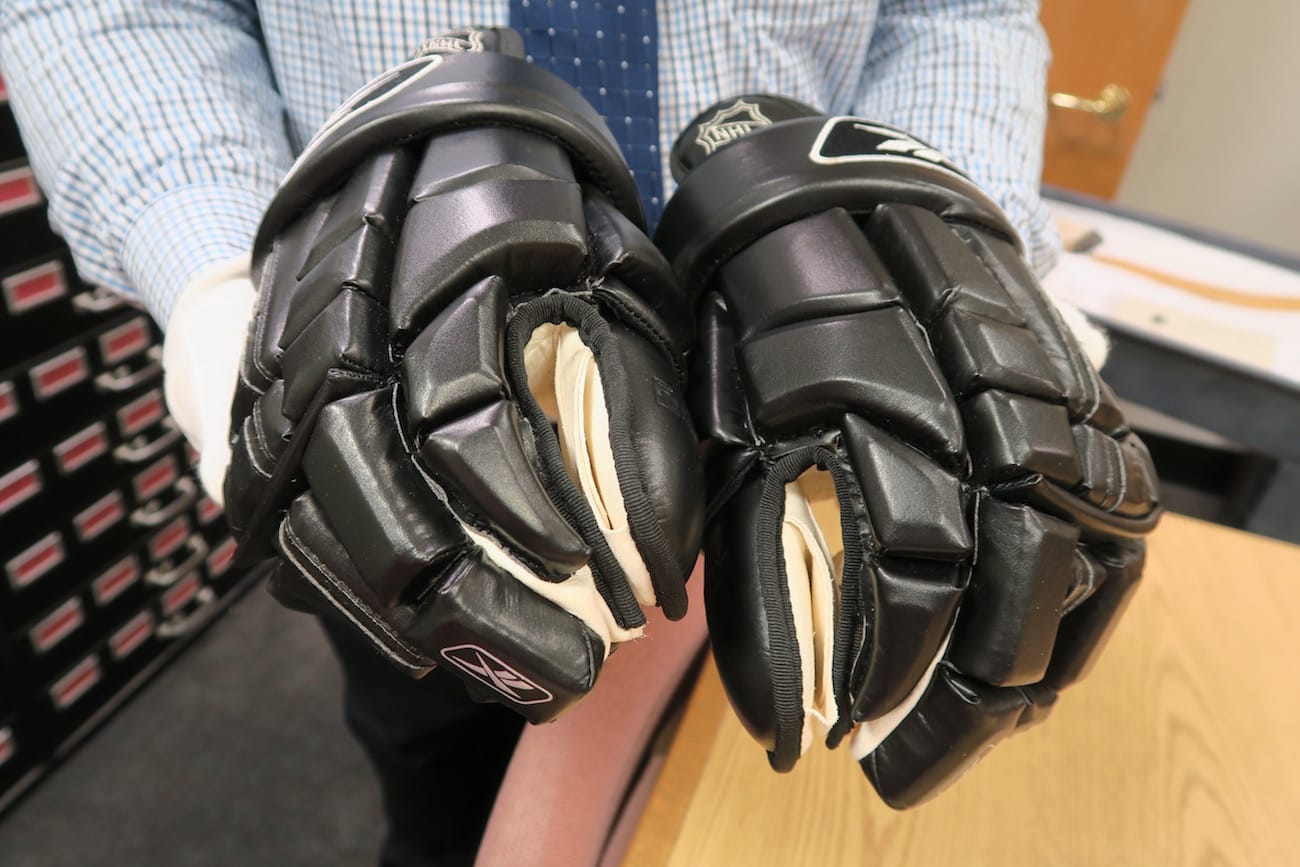
Bobby Orr is a hockey player. It is often debated whether he is the best hockey player of all time. And, guess what? There are Bobby Orr hockey gloves at the Baseball Hall of Fame! Orr wore these hockey gloves to drop the ceremonial first puck at the 2010 Winter Classic that the NHL held at Fenway Park. The game was between the Bruins and Flyers, and Orr, being a Bruins hockey legend, was there. The fact that these hockey gloves are at the Baseball Hall of Fame shows that ballparks have many uses.
Photographs by Riley Neubauer
